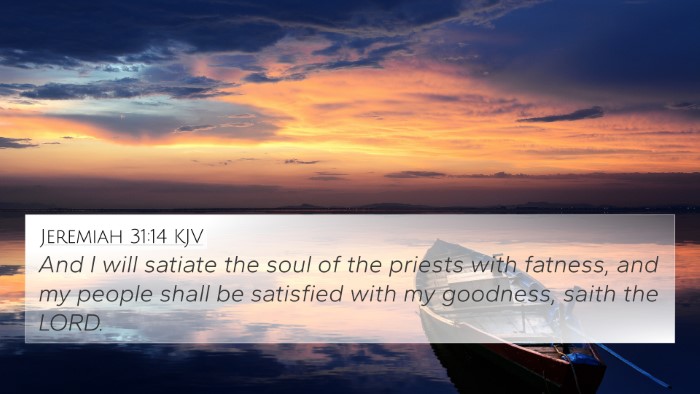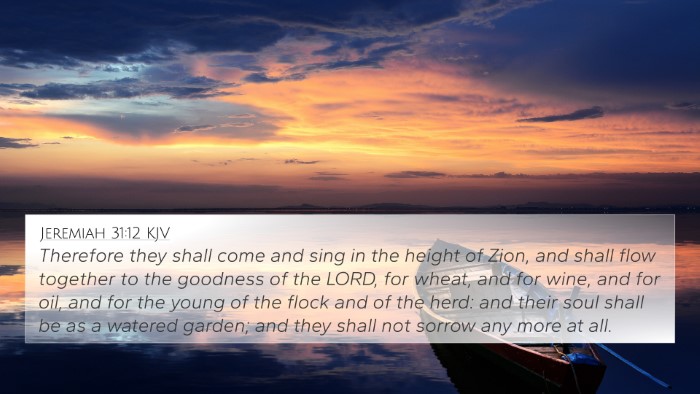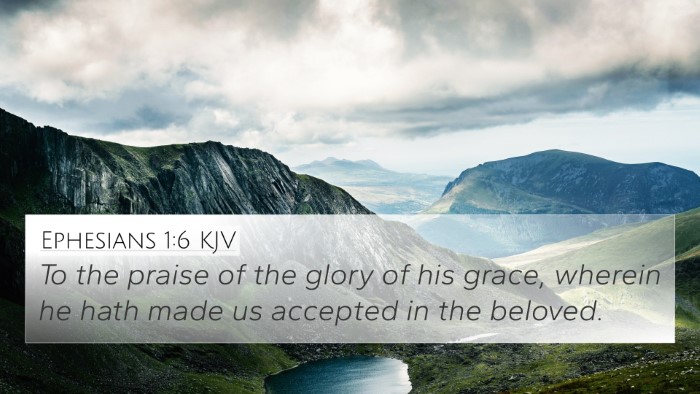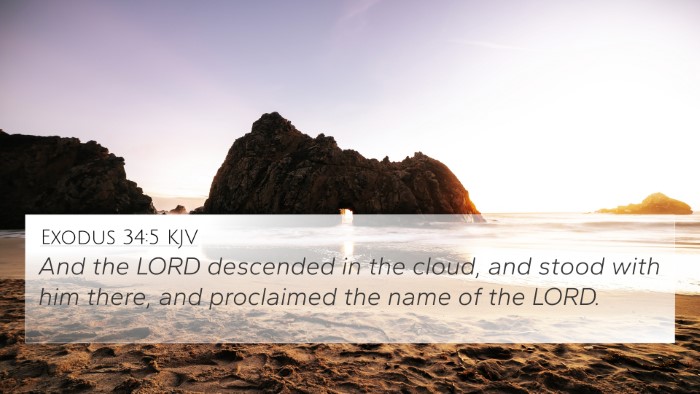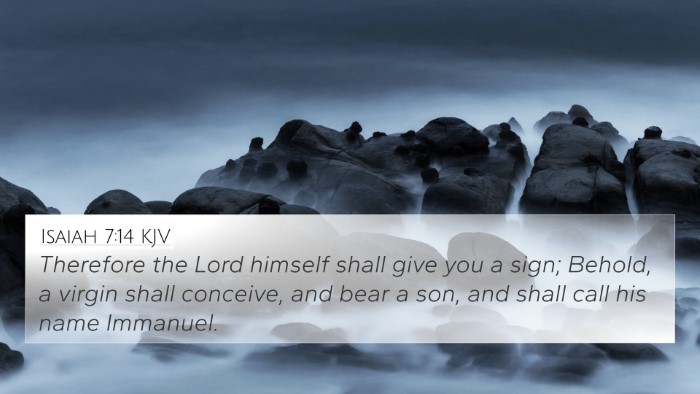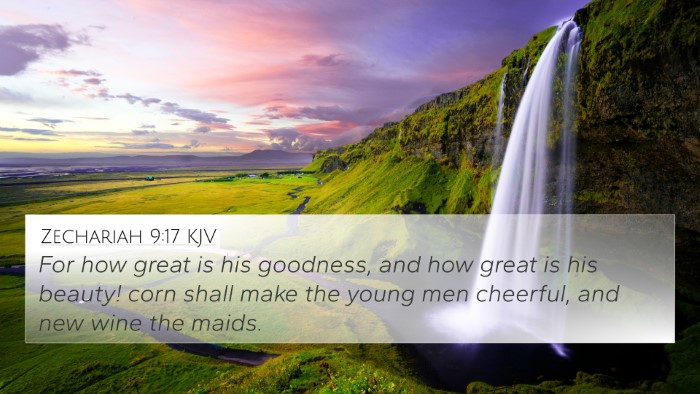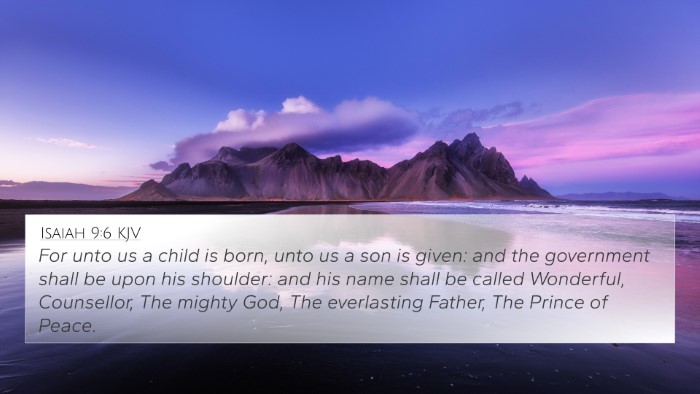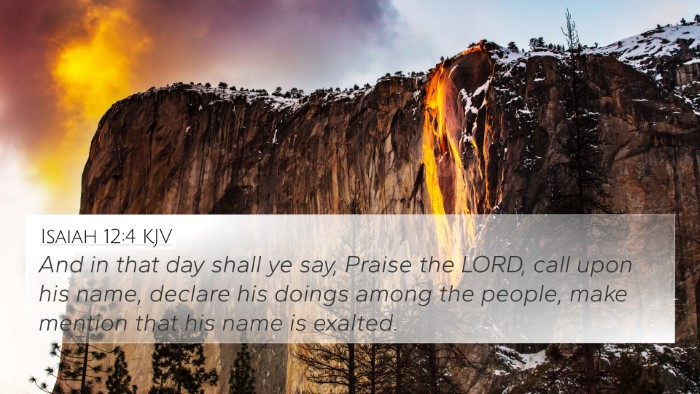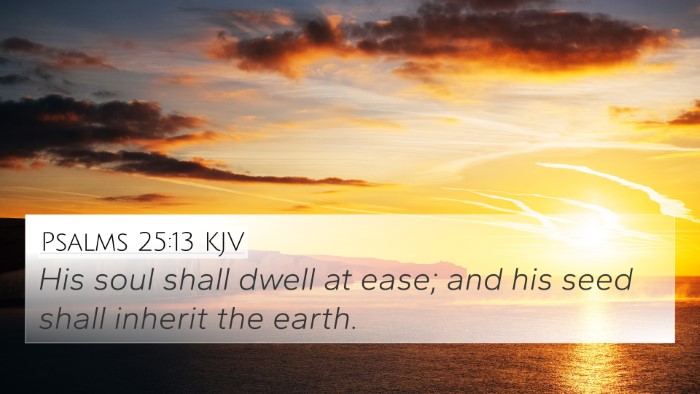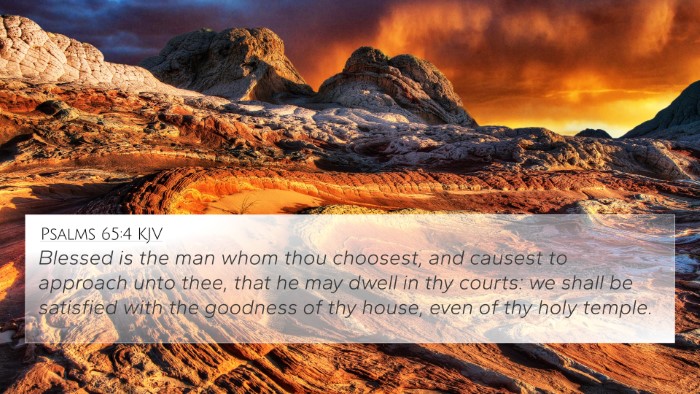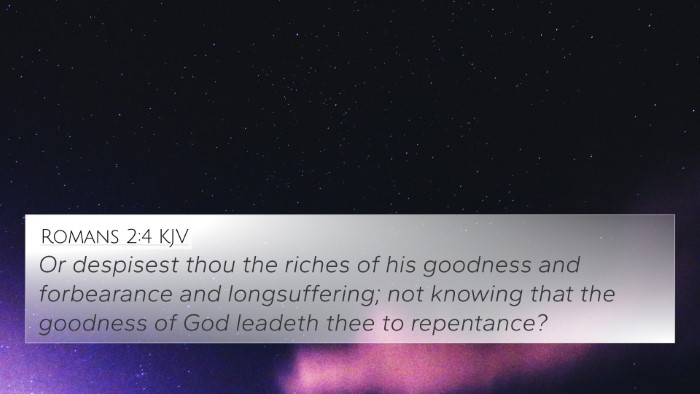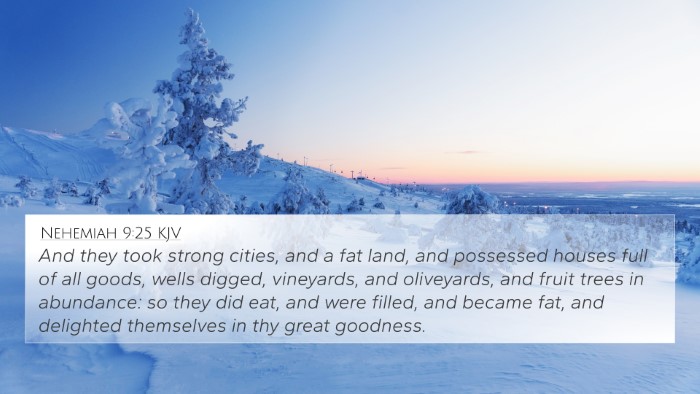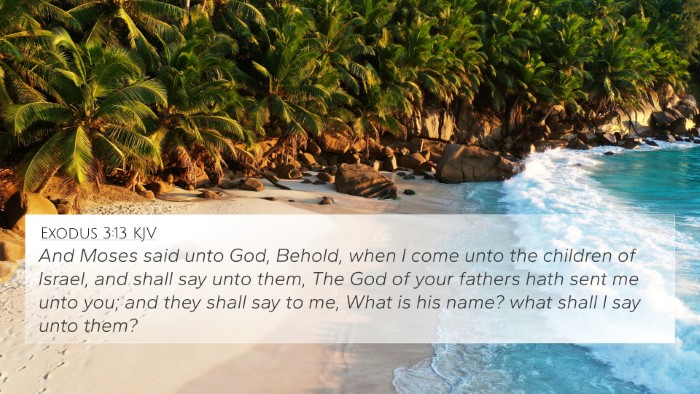Understanding Exodus 33:19
Exodus 33:19 states, "And he said, I will make all my goodness pass before thee; and I will proclaim the name of the Lord before thee; and will be gracious to whom I will be gracious, and will show mercy on whom I will show mercy."
Overview of the Verse
This verse occurs during Moses' request to see God’s glory. God responds by affirming His goodness and mercy, focusing on His sovereign will in showing grace. Moses is lead into deeper understanding of God's character, emphasizing themes of divine sovereignty, mercy, and revelation.
Insights from Commentaries
-
Matthew Henry:
Henry emphasizes that God is the source of goodness and mercy. He highlights the distinction between general and particular grace—a reminder that God's grace is not given to all in the same manner, but is at His discretion.
-
Albert Barnes:
Barnes explains that the proclamation of God's name represents His attributes and character—essentially a summary of all that God is. This sets the stage for understanding God’s nature as loving, gracious, and merciful.
-
Adam Clarke:
Clarke notes that God’s declaration of mercy allows for human interpretation of His work in the world. He highlights that while mercy is available, it is given according to God’s wisdom and purpose.
Thematic Connections
Exodus 33:19 connects significantly with various biblical themes and teachings that span across both Testaments. Here are some notable connections:
-
Psalm 86:15: "But you, O Lord, are a God merciful and gracious, slow to anger and abounding in steadfast love and faithfulness."
-
Romans 9:15-16: "For he says to Moses, ‘I will have mercy on whom I have mercy, and I will have compassion on whom I have compassion.’"
-
Lamentations 3:22-23: "The steadfast love of the Lord never ceases; his mercies never come to an end; they are new every morning; great is your faithfulness."
-
John 1:14: "And the Word became flesh and dwelt among us, and we have seen his glory, glory as of the only Son from the Father, full of grace and truth."
-
2 Corinthians 5:19: "That is, in Christ God was reconciling the world to himself, not counting their trespasses against them, and entrusting to us the message of reconciliation."
-
Ephesians 2:4-5: "But God, being rich in mercy, because of the great love with which he loved us, even when we were dead in our trespasses, made us alive together with Christ."
-
Hebrews 4:16: "Let us then with confidence draw near to the throne of grace, that we may receive mercy and find grace to help in time of need."
Cross-Referencing Biblical Texts
To fully grasp the implications of Exodus 33:19, it's essential to employ tools for Bible cross-referencing. These methods enable a deeper understanding of how biblical texts communicate divine truths. Below are some key points for effective cross-referencing:
-
Identifying thematic connections: Recognize themes of mercy, grace, and God's character across different verses to draw comparisons.
-
Utilizing Bible concordance: Use a concordance to find related words and themes that appear throughout Scripture, providing context and insight.
-
Cross-reference Bible study methods: Engage in comparative Bible verse analysis by examining how different scriptures illuminate the same attributes of God.
Conclusion
Exodus 33:19 serves as a profound exploration of God's nature, offering invaluable insights into His character. The connections made through the cross-referencing of Scripture deepen our understanding of grace and mercy, as shown through a multitude of related verses. Embracing these biblical truths encourages believers to appreciate the depth of God’s kindness and His sovereign choices in dispensing grace.
Further Exploration
For those interested in delving deeper into the themes presented in Exodus 33:19 and their interconnectedness within Scripture, it is beneficial to reflect on the following:
- What do the themes of grace and mercy reveal about God’s nature?
- How do other Biblical texts reinforce or expand upon Moses’ encounter with God in Exodus?
- In what ways can understanding these connections enhance our faith and spiritual growth?



